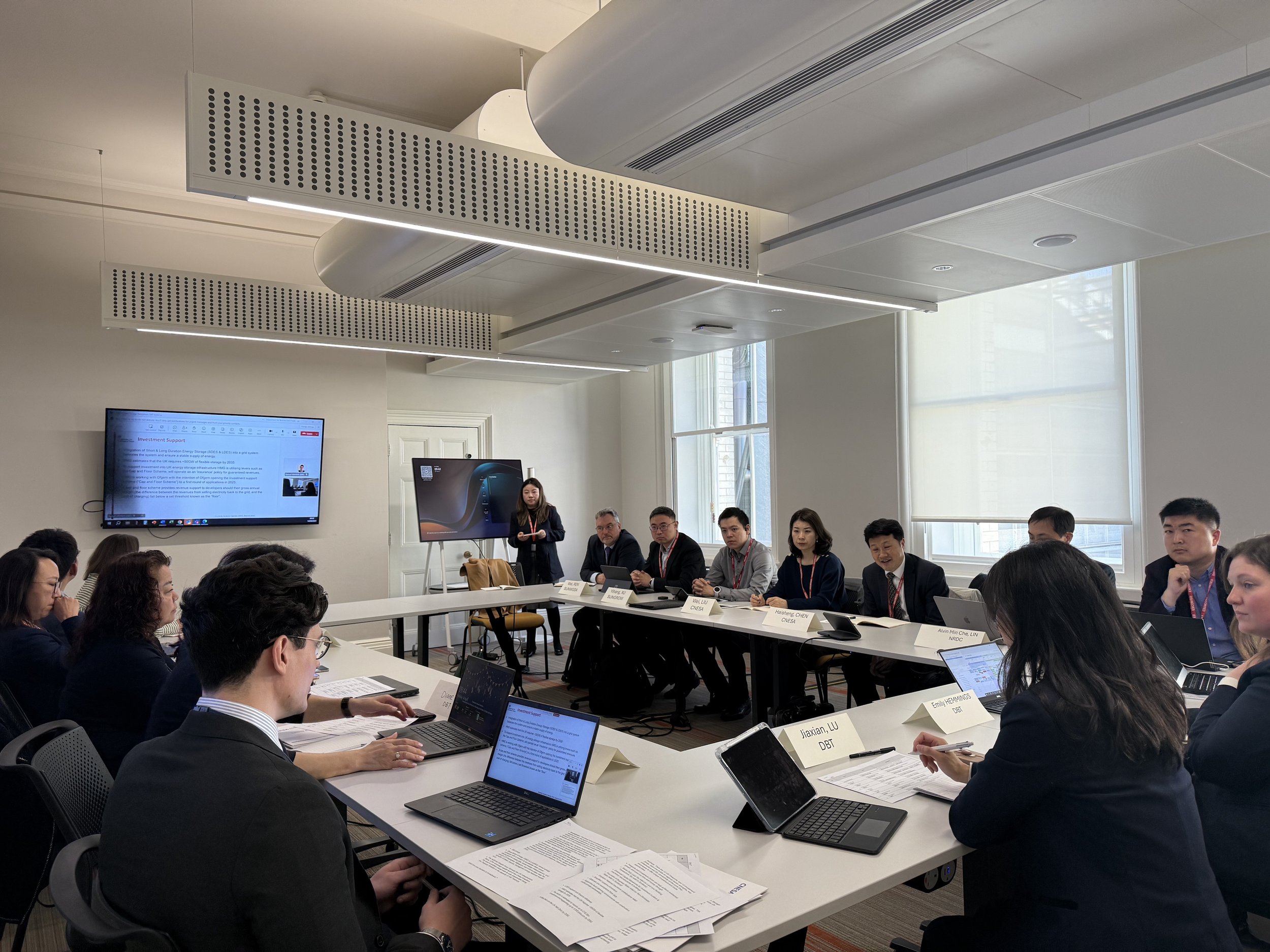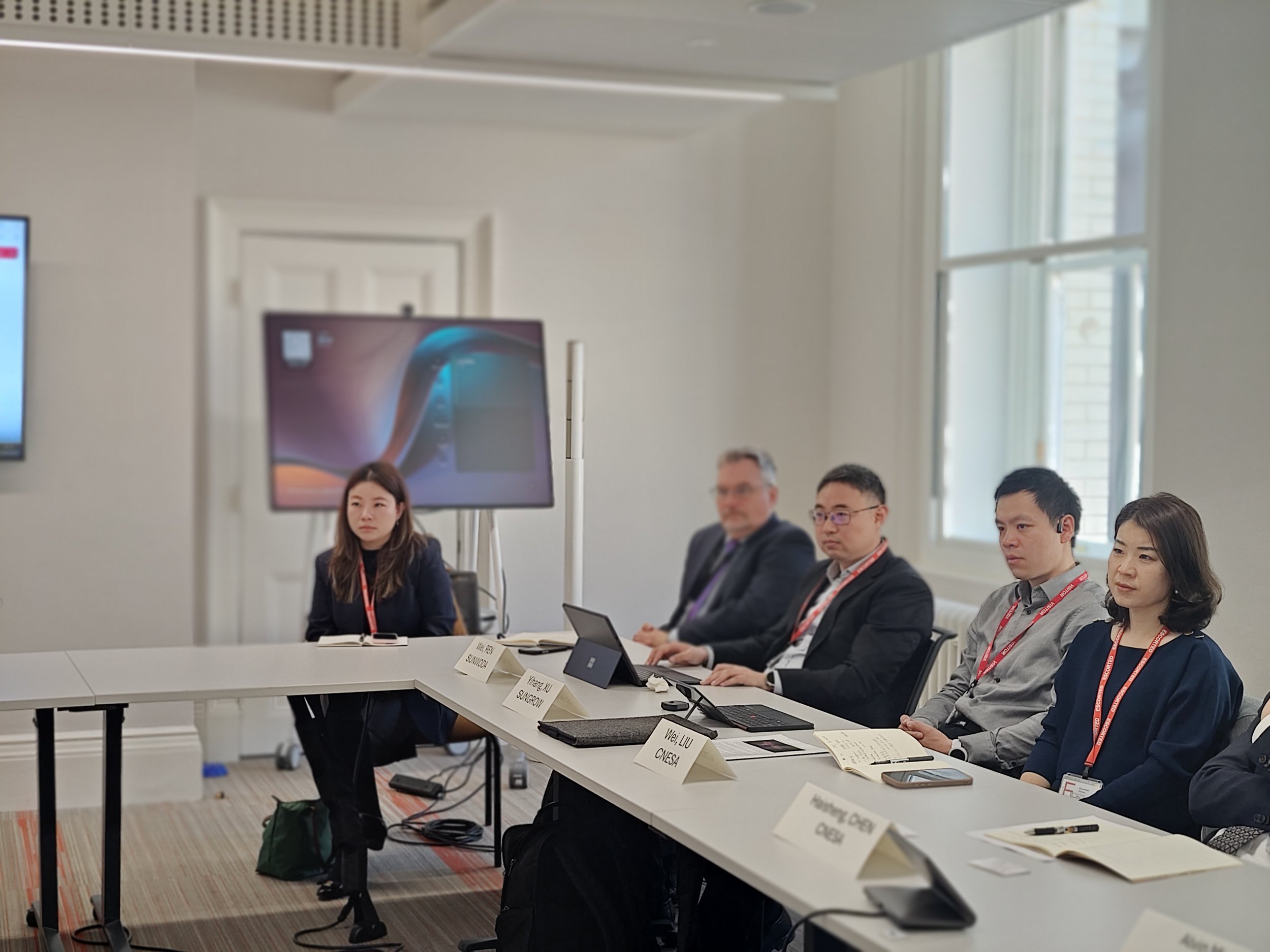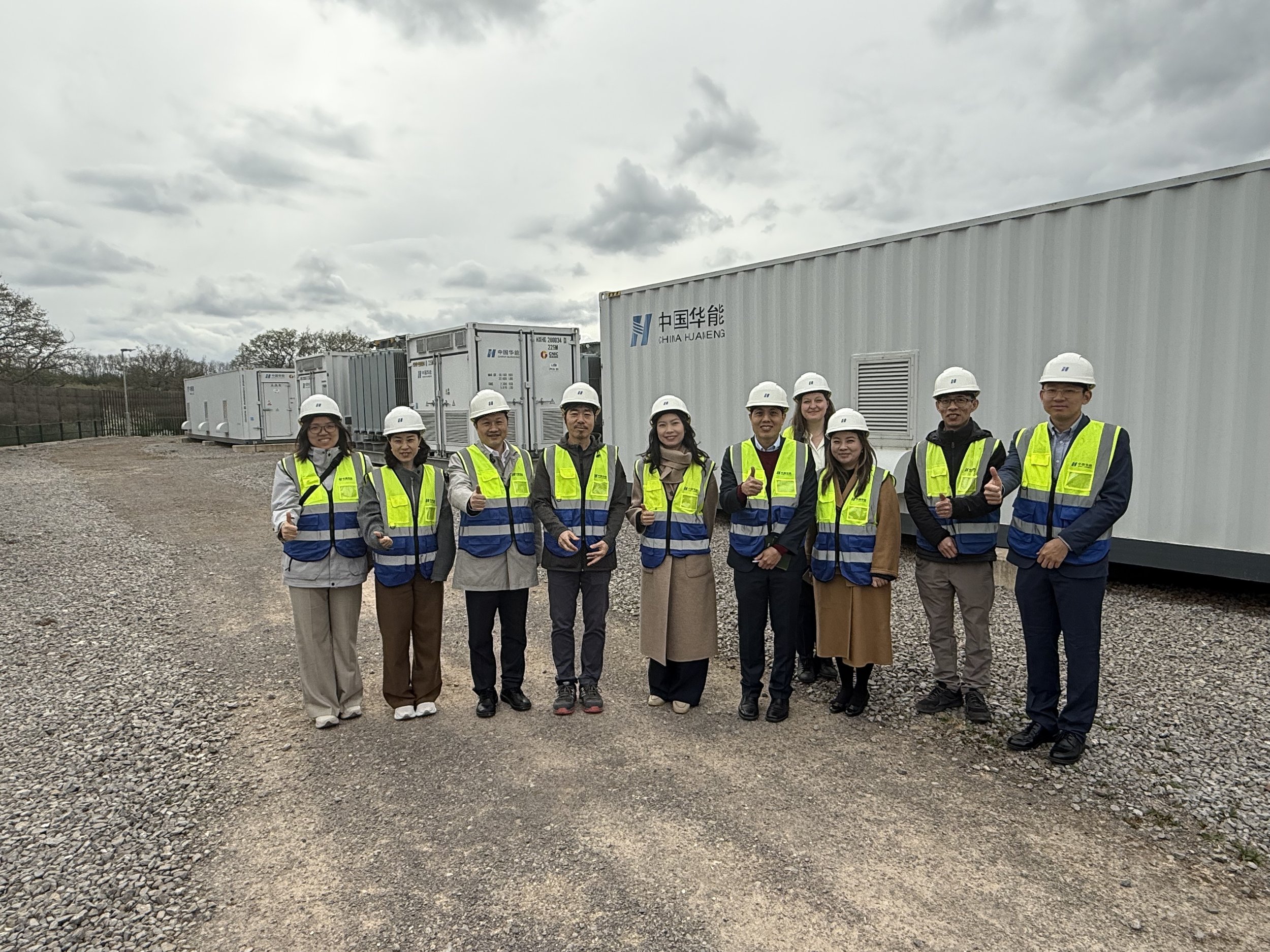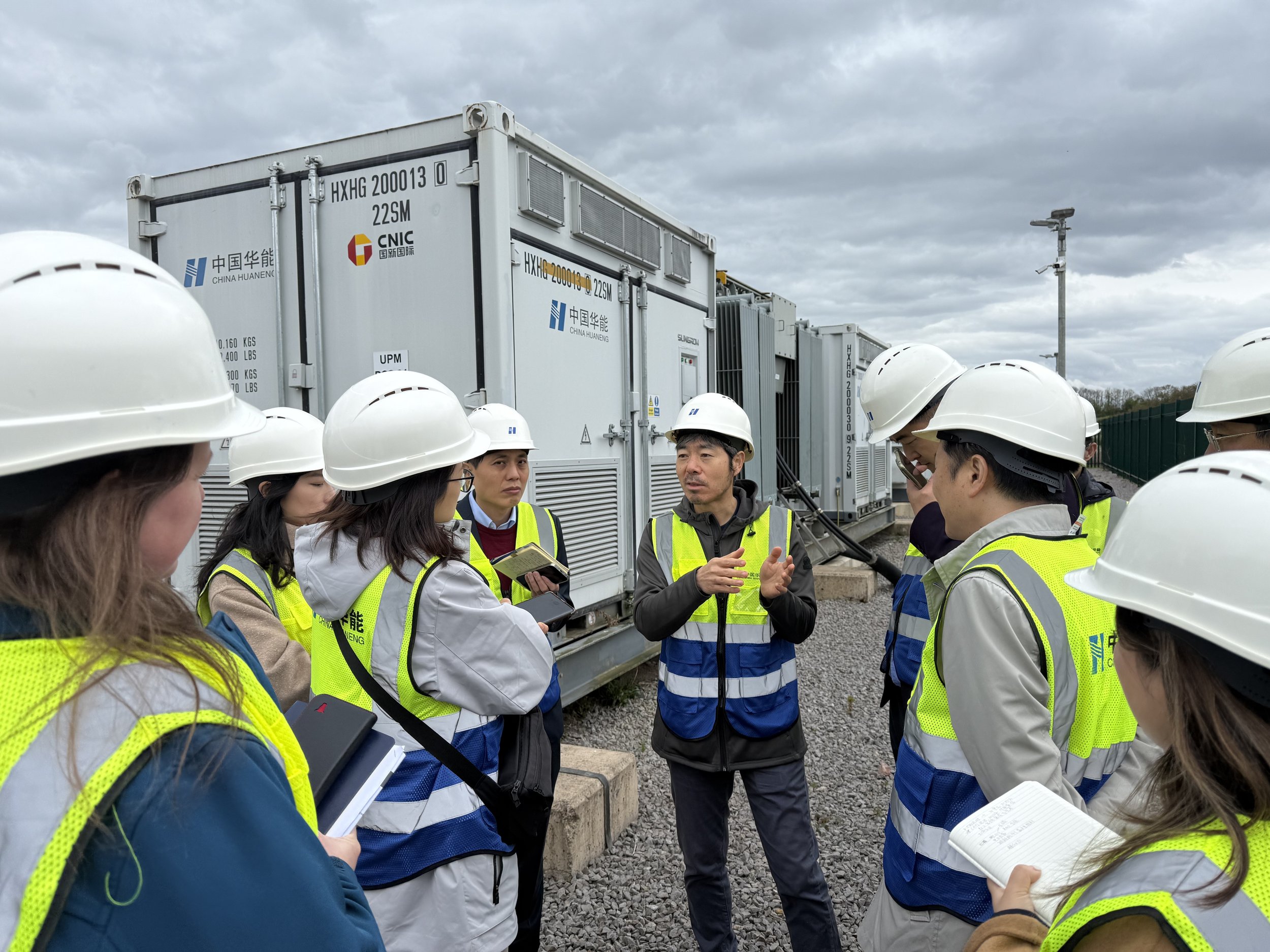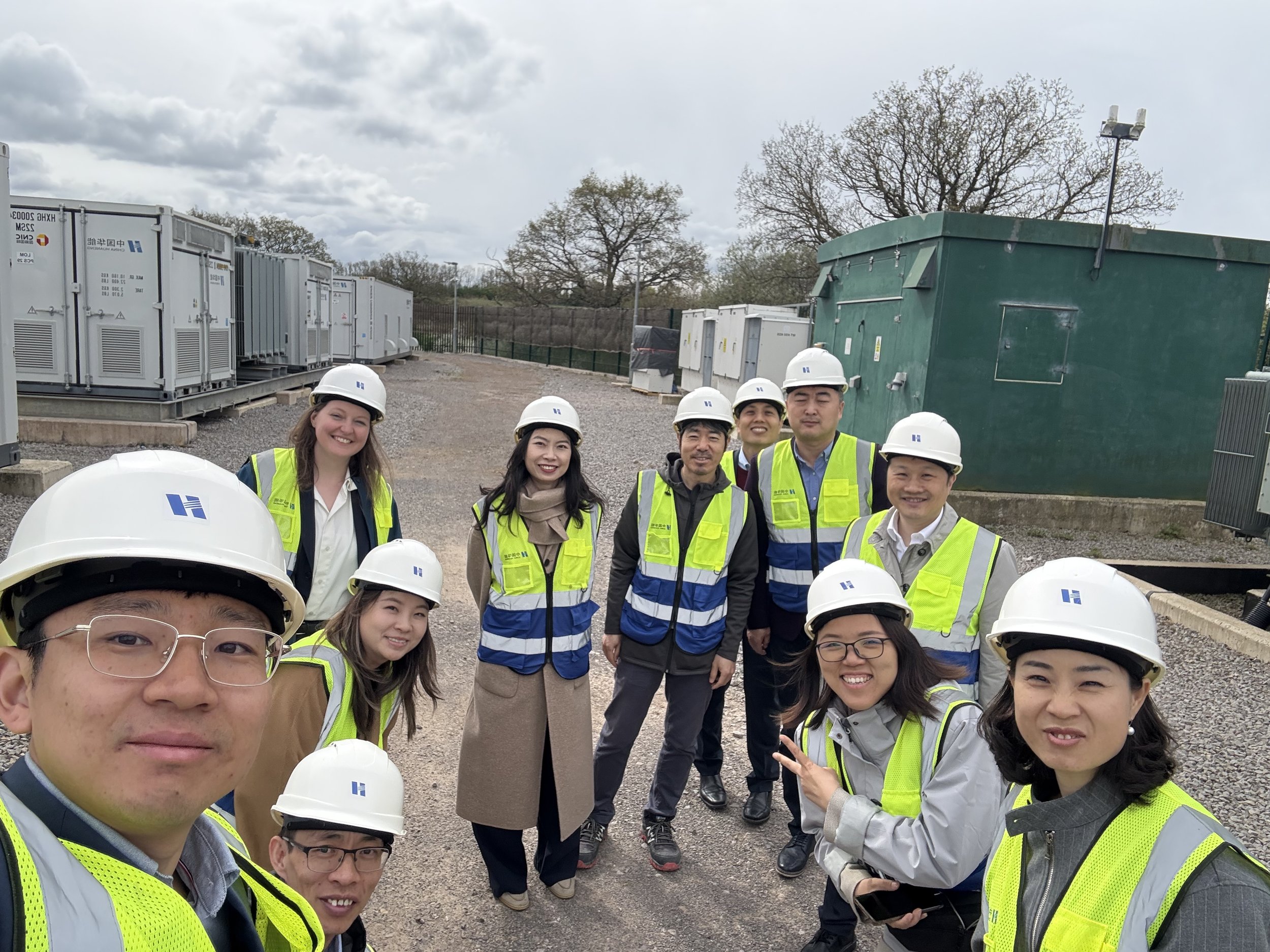On April 14, 2025 (local time), Chen Haisheng, Chairman of the China Energy Storage Alliance (CNESA), led a delegation of member companies, including Sungrow, Sunwoda, and GreenArch Energy, on a visit to the UK. The delegation held a symposium on energy storage industry cooperation and development with the UK Department for Business and Trade (DBT). Liu Wei, Secretary-General of CNESA, and Yue Fen, Deputy Secretary-General, also attended the meeting.
The discussions focused on the development prospects of the UK energy storage market, policy support frameworks, and the opportunities and challenges for Sino-UK corporate collaboration, aiming to provide support for Chinese energy storage companies expanding into the UK market and facilitate their global outreach.
Representatives from the UK Department for Business and Trade provided a detailed overview of the UK energy storage market. It is projected that the demand for new energy storage will reach 50GW by 2035. Policies such as the forthcoming "cap and floor mechanism" (see Note 1) and the Clean Power Plan 2030 will offer investors up to 10 years of revenue assurance. Currently, energy storage projects in the UK achieve an average annual return of 9-10%, with revenue streams from the capacity market, ancillary services market, and wholesale energy market.
Chen Haisheng, Chairman of CNESA, stated that this exchange marks a new phase in Sino-UK energy storage cooperation. The UK's highly liberalized electricity market and mature trading mechanisms complement the well-developed industrial chain advantages of Chinese energy storage companies. The alliance will continue to build three key platforms—policy coordination, technical exchange, and project collaboration—to help Chinese energy storage enterprises seize development opportunities in the global energy transition.
During the meeting, representatives from Chinese energy storage companies highlighted the opportunities and challenges of developing energy storage projects in the UK, covering areas such as talent recruitment, local supply chain security, and policy stability. The UK Department for Business and Trade responded with commitments to follow-up support measures. Through this dialogue, CNESA has established a crucial bridge for policy and market alignment between China and the UK in the energy storage sector, breaking down barriers to international expansion through information sharing and enhancing the global competitiveness of China’s energy storage industry.
In the afternoon, the delegation visited the China Huaneng Group’s Minety Battery Storage Project, which has a capacity of 100MW/100MWh (1-hour discharge duration). The project was jointly invested by Huaneng Hong Kong and CNIC Corporation Limited, with construction commencing in December 2019 and commercial operation starting in July 2021. Currently, Shell Global acts as the market agent for the project’s participation in electricity trading. In its first two years, the project primarily provided frequency regulation services, achieving strong returns. However, due to increased competition from a growing number of energy storage projects in the UK, Minety’s revenue has declined in recent years. Today, the project engages in frequency regulation, energy arbitrage, and holds long-term capacity market contracts, diversifying its revenue streams. The UK market has a strong demand for energy storage and is exploring compensation models for reactive power services, with expectations of new frequency regulation service varieties in the future. This is anticipated to improve energy storage project returns in the short term. The Minety project’s business model offers valuable insights for the evolution of energy storage projects in China.
Relevant Links:
Cap and Floor Mechanism: In October 2024, the UK government announced this regulatory framework for long-duration energy storage (LDES). By setting a price cap and floor, the mechanism aims to balance investment risks and returns, accelerate large-scale energy storage infrastructure development, and support the 2050 net-zero emissions target. The scheme is overseen by Ofgem, the UK energy regulator.

